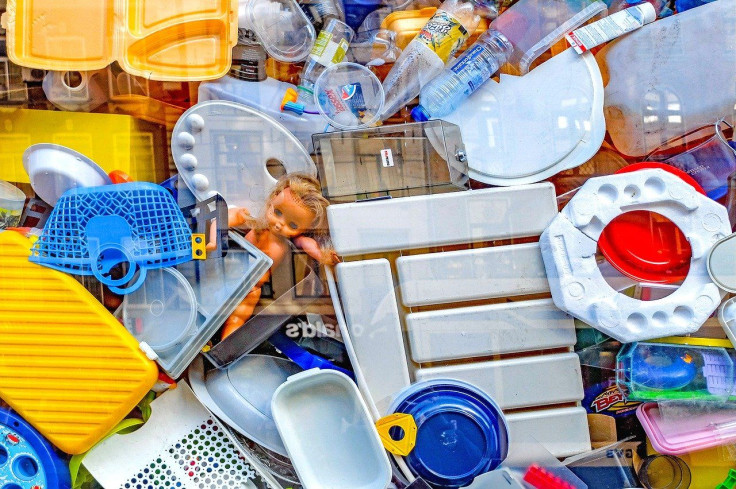US Products With 'Recyclable' Label Misleading, Most Are Sent To Landfills
KEY POINTS
- There are seven identification codes for recyclable plastics
- A Greenpeace report states that recycling facilities only accept and process two
- The rest are either not accepted or, accepted but eventually disposed of
- The labeling misleads consumers into thinking they made environment friendly choices
In the quest to reduce their plastic waste, many people choose products that are labeled as “recyclable.” However, a new report from Greenpeace USA revealed that the label on many of those plastics may actually be misleading. In fact, many are not even accepted at U.S. material recovery facilities (MRF) to be recycled and, even if they are accepted, the plastics still end up getting disposed of or incinerated.
For the comprehensive report, Greenpeace surveyed 367 U.S. material recovery facilities (MRF) and found that most of them could only process two types out of the seven plastic resin identification codes, #1 PET and #2 HDPE, both being the easiest types of plastic to recycle. Plastics under #3 to #7, even though companies label them as recyclable and may even be collected by recycling programs, don’t really get recycled and just end up in landfills.
In fact, only 11 percent of the MRFs accepted plastic cups, only four percent accepted plastic bags and only one percent accepted straws, stirrers, and cutlery. This means that many of the plastics labeled as recyclable actually end up as waste.
It is worth noting that the identification codes do not automatically mean that a plastic product with the label is recyclable. The Society of the Plastics Industry made the identification codes in 1988 as a means to determine the type of plastic used on the product. They were not meant to be consumer communication tools.
Unfortunately, the labels, especially ones wrongfully marked as "recyclable," mislead consumers to believing that they are making more environment-friendly choices, not knowing that a vast majority of them just end up as waste.
Companies such as Walmart, Procter & Gamble, Clorox, SC Johnson, and Unilever have sold products with misleading "recyclable" labels and, as such, Greenpeace has asked them to correct the labeling of their products.
“Companies are expanding the use of "recyclable" labels on plastic products at an aggressive pace,” Greenpeace stated in its report. “Since claims and labels affect a consumer's purchasing decision, the claims and labels must not be misleading to be legal and provide the environmental benefits claimed.”
According to Greenpeace, this shows the significant changes in recycling facilities after China imposed a ban on plastic waste importation. Unfortunately, the problem could only get worse as plastic production lowers the cost of new plastic resin.
The report also shows how consumers' choices could help make long-term improvements to the global plastic waste problem. This means that the consumers would need to make better choices when it comes to the products that they buy and use by really eliminating the use of single-use plastics, even if they are labeled as recyclable, and by choosing refillable, reusable and even package-free options.

© Copyright IBTimes 2024. All rights reserved.






















